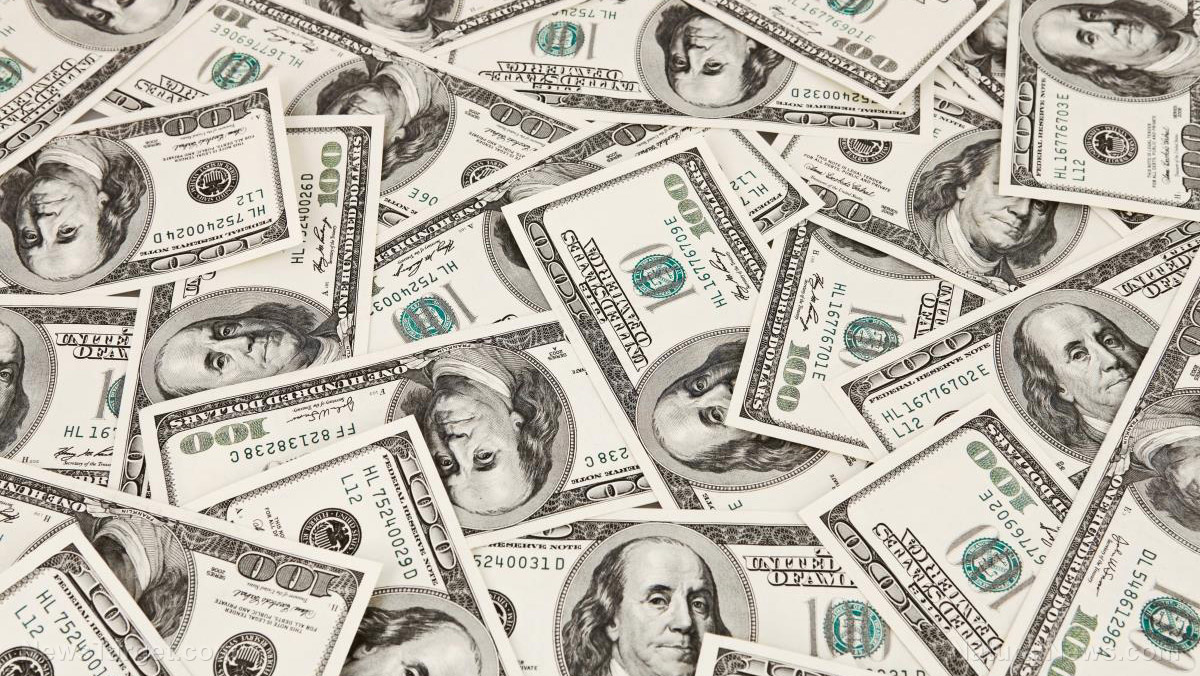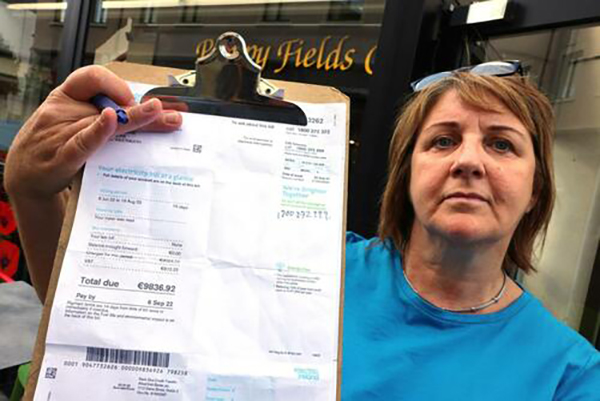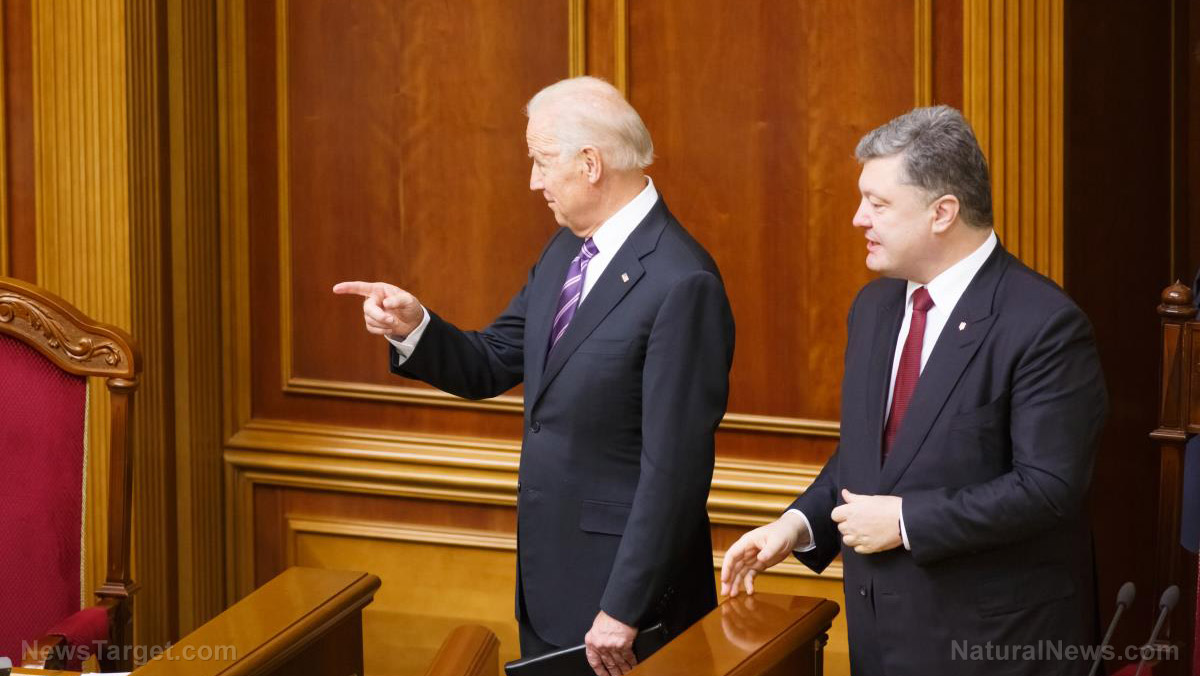Despite its five felony counts, the Federal Reserve has entrusted $2 trillion in bonds to JPMorgan Chase
11/10/2020 / By News Editors

Imagine that your neighbor across the street had been criminally charged with five felony counts for financial crimes in the past six years and admitted to committing each and every crime to the U.S. Department of Justice. Would you put one-third of all of your money in a safe, give that neighbor the combination, and ask him to hold the safe in his house for you? You would probably be suited up for a straight jacket if you did something like that.
(Article by Pam Martens and Russ Martens republished from WallStreetOnParade.com)
That’s effectively what the Federal Reserve, the central bank of the United States, has done when it comes to JPMorgan Chase. As of this past Wednesday, the Fed has a $7 trillion balance sheet and $2 trillion of its agency Mortgage-Backed Securities are sitting at JPMorgan Chase, the bank that the Department of Justice has charged with five criminal felony counts since 2014 – all of which it admitted to.
Since JPMorgan Chase first inked a contract with the Federal Reserve Bank of New York on December 31, 2008, it has been the sole custodian of all of the agency Mortgage-Backed Securities (MBS) that the Fed had bought in its long-running Quantitative-Easing programs. The contract was updated on January 30, 2017 and continues to this day. We confirmed that fact with the New York Fed yesterday. As of this past Wednesday, JPMorgan Chase was holding $2,000,305,000,000 (principal amount) in MBS backed by Fannie Mae, Freddie Mac or Ginnie Mae that belongs to the Fed.
The Fed apparently saw no need to find a new custodian for the $1.49 trillion of MBS that JPMorgan Chase was holding for the Fed on January 7, 2014 when the Justice Department charged the bank with two criminal counts for its role in the Bernard Madoff Ponzi scheme. The bank admitted to the charges; paid $1.7 billion into a Madoff victims fund; and was given a 3-year Deferred Prosecution Agreement and put on probation for the same period.
The Fed was apparently not worried about JPMorgan holding $1.7 trillion of the Fed’s MBS on May 20, 2015 when the bank was charged with its third criminal felony count in less than a year and a half. On that occasion, JPMorgan Chase pleaded guilty to one criminal count brought by the Justice Department for its role with other banks in rigging the foreign exchange market. The bank paid a fine of $550 million and was put on probation again.
And when the bank admitted to its fourth and fifth felony count on September 29 of this year, once again the Fed saw no reason to remove its $2 trillion in mortgage securities from the sticky palms of JPMorgan Chase. The latest felony counts, once again brought by the Justice Department, involved “tens of thousands of episodes of unlawful trading in the markets for precious metals futures contracts” and “thousands of episodes of unlawful trading in the markets for U.S. Treasury futures contracts and in the secondary (cash) market for U.S. Treasury notes and bonds,” according to the Justice Department. The bank agreed to pay $920 million in fines and restitution to various regulators. It was given another Deferred Prosecution Agreement and put on probation for the third time.
Could this story get more outrageous? Yes it can.
Not only did the Federal Reserve look the other way at five criminal felony counts, but it looked the other way as JPMorgan Chase was repeatedly charged with fraud involving the very same securities it was holding for the Fed.
On November 15, 2013, JPMorgan Chase announced that it had agreed to pay $4.5 billion to settle claims by private investors that it had defrauded them in mortgage-backed securities.
On November 19, 2013, JPMorgan agreed to pay $13 billion to settle claims by the Department of Justice, the FDIC, the Federal Housing Finance Agency, and various State Attorneys General over its fraudulent practices involving mortgage-backed securities. Associate Attorney General Tony West said this at the time:
“Through this $13 billion resolution, we are demanding accountability and requiring remediation from those who helped create a financial storm that devastated millions of Americans. The conduct JPMorgan has acknowledged — packaging risky home loans into securities, then selling them without disclosing their low quality to investors — contributed to the wreckage of the financial crisis. By requiring JPMorgan both to pay the largest FIRREA penalty in history and provide needed consumer relief to areas hardest hit by the financial crisis, we rectify some of that harm today.”
Then, on February 4, 2014, JPMorgan admitted to a civil fraud action brought by the U.S. government for “submitting false certifications” to various government agencies to get its toxic mortgages insured by those agencies and “failing to self-report to HUD-FHA hundreds of loans that it had identified as fraudulent or otherwise deficient, and to submitting loan data to HUD-FHA that lacked integrity.” The bank was fined another $614 million in that matter.
To summarize: JPMorgan Chase played an integral role in bringing on the financial crisis of 2008 which forced the Fed to launch a bond-buying program to resuscitate the U.S. economy. JPMorgan Chase then benefitted by getting paid fees in the tens of millions of dollars to hold those bonds for the Fed. The bank then went on its merry way engaging in serial criminal activity; being put on probation; getting off probation and engaging in more criminal activity: All while the Fed has entrusted it with $2 trillion of Fed assets sitting inside its house of crime.
If ever there was a time for a new Financial Crisis Inquiry Commission, it’s right now.
Read more at: WallStreetOnParade.com and Corruption.news
Submit a correction >>
Tagged Under:
crime, criminal charges, debts, Federal Reserve, felony, finance, JPMorgan Chase
This article may contain statements that reflect the opinion of the author
RECENT NEWS & ARTICLES
COPYRIGHT © 2018 MONEYSUPPLY.NEWS
All content posted on this site is protected under Free Speech. MoneySupply.news is not responsible for content written by contributing authors. The information on this site is provided for educational and entertainment purposes only. It is not intended as a substitute for professional advice of any kind. MoneySupply.news assumes no responsibility for the use or misuse of this material. All trademarks, registered trademarks and service marks mentioned on this site are the property of their respective owners.





















